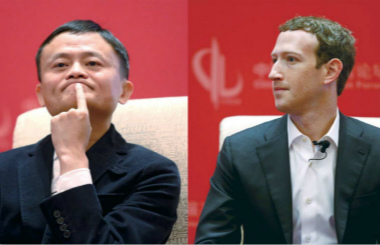Vis-a-vis visas, Europe plays
Updated: 2016-04-01 08:30
By Xu Lin(China Daily Europe)
|
|||||||||
|
|
Schengen nations are opening dozens of visa centers to facilitate biometric data processing outside major cities
Yin Rui is happy he won't have to travel to Beijing to get his Schengen visa to visit Spain this year.
The Spanish embassy in Beijing recently announced it will open 12 visa centers in second-tier cities including Nanjing, Shenyang and Wuhan, which is about 45 minutes by high-speed train from Yin's hometown, Xinyang in Henan province.
He and his wife usually have to take a four-hour train ride to the capital, which would require an overnight stay.
"It's convenient for people who don't live in big cities," the 31-year-old says.
Spain and other Schengen countries, including the Czech Republic, Germany, Greece and France, plan to open visa centers around China this year.
This is partly in response to the policy announced in October that requires Chinese to submit biometric data to get a Schengen visa. The information is stored for 59 months.
Previously, few European consulates or visa centers were outside Beijing, Shanghai or Guangzhou.
"It will have a positive impact on Chinese tourists, as the centers will offer convenient access for most clients," says Catherine Oden, a director for Atout France, the country's tourism development agency. "Their travel time to cities with the centers will be reduced. It may also encourage more tourists to travel to France."
Nearly 400,000 Chinese visited Spain last year, up about 40 percent on 2014, the Spanish Statistics Institute reports. Spending increased 62 percent.
"Spain appeals to Chinese tourists because it has rich cultural heritage and a unique culture," says the Spanish embassy's tourism counselor, Dario Polo Rodriguez.
The country has 44 UNESCO World Heritage sites and also offers fantastic weather, scenery and natural landscapes, not to mention luxury shopping with high tax refunds, he says.
Spain's tourism authority in China has expanded cooperation with Chinese partners and staged promotions in second-tier cities.
Germany has been hosting annual roadshows in second-tier cities since 2014, according to the director of its national tourist board's Beijing office, Li Zhaohui, who says it has focused on cities with direct flights to Europe that have consulates or application centers, plus a growing middle class.
The country is opening new centers in cities such as Jinan in Shandong province and Hangzhou in Zhejiang province.
Nearly 1.4 million Chinese visited Germany last year, roughly 35 percent more than in 2014. The most popular destinations were Munich, Frankfurt, Cologne, Dusseldorf and Stuttgart.
China's second-tier cities' outbound tourism markets are more price-sensitive, and residents often know less about destinations, Li says.
She says young Chinese prefer independent, in-depth travel. They enjoy road trips, cycling and hiking.
The tourism board and German airline Lufthansa recently partnered to launch a Chinese-language app about road trips and shopping to help travelers determine routes and communicate with one another.
As for France, Chinese visitors enjoy high-end luxury, chic boutiques and retail shopping, Oden says.
A growing number of independent travelers also appreciate authentic cuisine, including Michelin-starred restaurants, and visit vineyards and attend wine-tasting courses. Some even take cooking classes from French chefs.
Atout France organizes themed promotions to attract a dynamic mix of Chinese, including those from second-tier cities.
Last year's themes included gastronomy, shopping and culture. These will continue this year, with the addition of family travel, Oden says.
"I'm particularly fond of this theme, as I believe France is a destination best suited to welcoming families," she says. "An abundance of theme parks, amusement parks, adventure parks and family friendly activities will ensure they have an enjoyable holiday."
Atout France offers online training for French enterprises to better understand Chinese preferences. Department stores like Galeries Lafayette offer separate welcome areas for Chinese.
"Chinese tourists are mainly interested in European culture and history, food and shopping," says Frantisek Reismuller, director of China operations for the European Travel Commission, which promotes 32 member nations as destinations.
The impact of the March 22 terrorist attacks in Brussels on Europe's inbound tourism remains to be seen. The attacks killed 35, including a Chinese national, Xinhua News Agency reported.
"The problem is bigger than tourism," Reismuller says. "What we can do is to provide information as quickly as possible to show Europe is still a safe destination. It (the attack) was unfortunate, but that doesn't mean traveling itself is dangerous."
xulin@chinadaily.com.cn
Today's Top News
A fresh start
Bookshops reinvent themselves
Xi-Obama bilateral talk to advance ties
Foreign companies reassured on new Internet rules
Beijing and Prague form new key link
Trump drops pledge to back Republican nominee
China, Czech Republic set up strategic partnership
EgyptAir hijacker arrested, all passengers freed
Hot Topics
Lunar probe , China growth forecasts, Emission rules get tougher, China seen through 'colored lens', International board,
Editor's Picks

|

|

|

|

|

|







